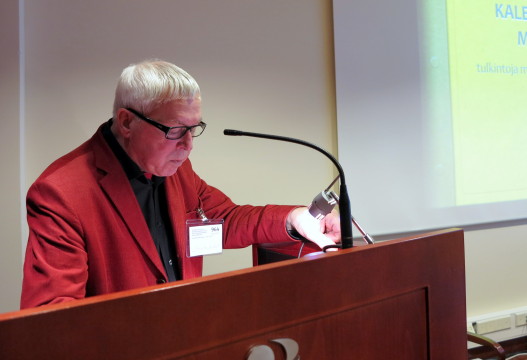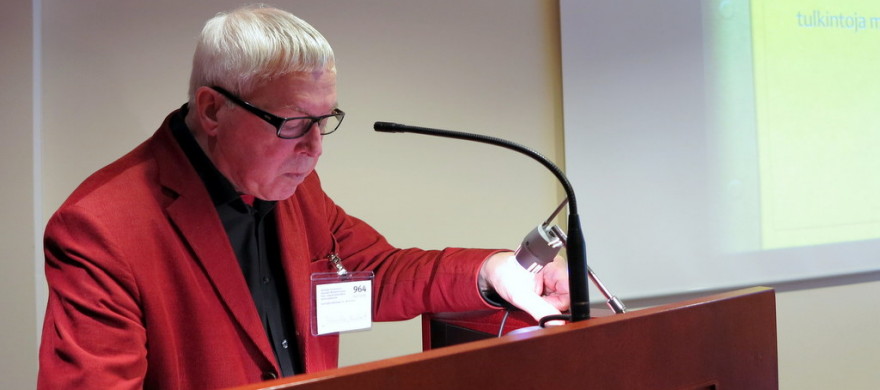Gisbert Jänicke 2004
Gisbert Jänicke (b. 1937) was born in Germany but lives in Finland now and works as an author and translator. Jänicke has done, for the time being, the latest German translation of the whole Kalevala. Jänicke argued that there is a need for a new translation as he stated that he does not think that the earlier translations were able to present the contents of the Kalevala clearly enough.

Gisbert Jänicke gives a lecture on the Kekrinpäivä seminar at the Kalevala Society in the autumn of 2012. The Kalevala Society Foundation.
Jänicke had a clear vision of the purpose of the translation: he wanted it to be a readable book, in which the content is more important than the form and that it would be possible to read the book aloud and listen to the text. When deciding on the form of his translation, Jänicke’s goal was that as the story evolved the reader would be able to concentrate on it without interruptions and that the reader would not stop to think of a certain passage, which, consequently, would interrupt his/her own process when receiving the text. Jänicke describes his translation as prose poetry, prose that is rhythmically narrated. By this he wanted to evoke the interest of new and young readers.
The translation was published in 2004 and during its first year two printings came out. It was also recorded as an audio book consisting of four CDs. The texts were read by Markus Heringer, an actor at the Wiener Burgtheater.
According to the critics, Gisbert Jänicke had managed to reach his goal, in other words to create an easily readable translation of the Kalevala. It was even argued that it was worth reading the epic because of its language, not so much because of its content (Cornelius Hell, Die Presse September 25, 2004). A modern and contemporary language, a distinctive interpretation of the out-of-date expressions and the use of free rhythm allowed the “contrasting spells and spoken words, the drama and the comedy that is so typical for it to spring into bloom” (Heinrich Detering, Frankfurter Allgemeine Zeitung, September 25, 2004).
Voßschmidt, Liisa: “Saksan kautta eurooppalaiselle kulttuuriareenalle” – Kalevala maailmalla. Helsinki: SKS. 2012.
